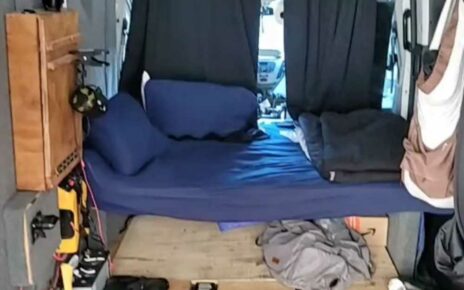Save articles for later
Add articles to your saved list and come back to them any time.
The federal government is confident the United States Congress will agree to authorise the sale of nuclear-powered submarines to Australia in a breakthrough deal that overrides doubts the AUKUS pact would weaken the US Navy.
The submarine plan stalled in July when 23 Republican senators, including Republican Senate leader Mitch McConnell, wrote to US President Joe Biden saying they did not support the proposal to provide nuclear-powered submarines to Australia unless the US doubled its own domestic production capacity.
Australia has agreed to purchase between three and five Virginia-class submarines from the US.
US legislators have been negotiating to include the AUKUS submarine transfer in the annual National Defence Authorisation Act, which also includes funding for military aid to Israel and Ukraine.
The final negotiated bill is expected to be made public as early as Friday and could pass within weeks.
A spokeswoman for Defence Minister Richard Marles said: “Australia welcomes the continued progress of legislation through the US Congress and acknowledges the ongoing work of Congress and the Biden administration.
“Ultimately, the passage of this legislation remains a matter for Congress, but the bipartisan support for AUKUS provides us with an enormous sense of confidence.”
The spokeswoman said Marles had repeatedly noted that “there is an overwhelming commitment to, and strong support for, the US-Australia alliance and for AUKUS”.
Australia has agreed to purchase between three and five Virginia-class submarines from the US before it begins construction on a new class of British-designed nuclear-powered submarines known as SSN-AUKUS.
The US, United Kingdom and Australian defence ministers announced over the weekend that they would ramp up co-operation on underwater drones, artificial intelligence and deep-space technology, a development Marles praised as a “watershed moment” in the progress of the AUKUS security partnership.
The growing optimism about the progress of the AUKUS pact came as Prime Minister Anthony Albanese and Papua New Guinea Prime Minister James Marape signed a sweeping security agreement, including $200 million in funding to boost policing and national security services in PNG.
The legally binding deal will put our security relationship with PNG on the same level as arrangements with the US and New Zealand by including language almost identical to the ANZUS treaty.
The new pact requires Australia and PNG to consult each other and consider possible action to defend each other if they come under attack or face other major security threats.
“This is a comprehensive and a historic agreement,” Albanese said.
“It will make it easier for Australia to help PNG address its internal security needs and for Australia and Papua New Guinea to support each other’s security and the region’s stability.”
Papua New Guinea Prime Minister James Marape and Prime Minister Anthony Albanese signed a landmark security agreement.Credit: Alex Ellinghausen
The agreement is the latest move by the federal government to ensure Australia remains the partner of choice for Pacific nations so they do not become dependent on China for their security needs.
Marape said the agreement encompassed “a broad spectrum of security” ranging from policing to the judiciary to defence.
Under the deal, Australia will fund a new police recruit and investigations training centre in Port Moresby to help PNG train more police officers as it works to almost double the size of its police force from 5600 to 10,000 officers.
Unlike the agreement struck with Tuvalu last month, the security pact with PNG does not give Australia a veto over security arrangements that PNG strikes with other nations.
Marape will return to Australia on February 8 to make an address to a joint sitting of parliament, making him the first foreign leader to do so since Indonesian President Joko Widodo in 2020.
Cut through the noise of federal politics with news, views and expert analysis. Subscribers can sign up to our weekly Inside Politics newsletter.
Most Viewed in Politics
From our partners
Source: Read Full Article




